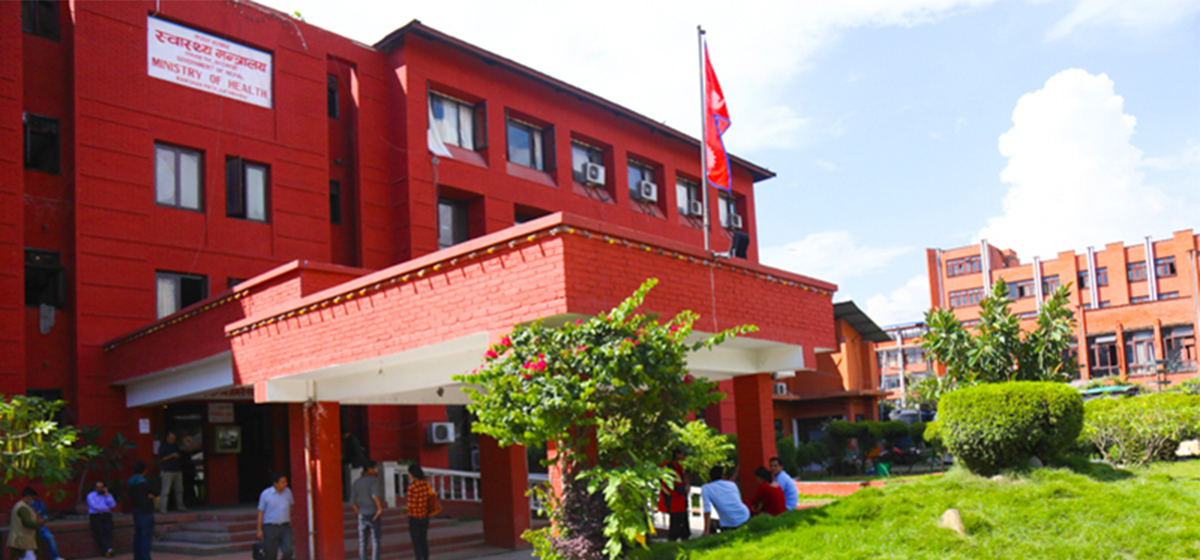
OR
Editorial
Revitalizing the operation of industries to their full capacity
Published On: December 30, 2023 07:18 AM NPT By: Republica | @RepublicaNepal

In the wake of an economic slowdown that has cast a shadow over the nation, the manufacturing sector in Lumbini Province finds itself grappling with a significant setback. Recent findings from a study report by Nepal Rastra Bank (NRB) reveal a disconcerting 5.54 percent shrinkage in the production capacity of factories in the region, dropping from 56.36 percent in the fiscal year 2021/22 to a mere 50.82 percent in the fiscal year 2022/23. This decline is indicative of the widespread repercussions of the economic recession that has plagued the country for over a year. The root cause of this decline lies in the dwindling aggregate demand within the country, primarily stemming from a reduction in people's purchasing power due to the lack of employment opportunities. The repercussions of this downturn are evident in the significant drop in economic activities, particularly in the construction sector. The impact of this economic downturn is most pronounced in sectors responsible for the production of essential goods such as electrical accessories, wheat flour, edible oil, iron rods, and medicinal products. The production of synthetic textiles, for example, witnessed a staggering decline of 38.88 percent, primarily attributed to a surge in raw material prices. Notable decreases were also observed in the production of aluminium products (29.42 percent), mustard oil (20.21 percent), and wheat flour (21.36 percent). Such contractions in vital industries not only jeopardise economic stability but also risk the livelihoods of countless workers and entrepreneurs dependent on these sectors.
However, amidst these challenges, some industries have demonstrated resilience. Manufacturers of alcoholic beverages, operating at 85.76 percent of their capacity, emerged as the highest performers. On the contrary, the manufacturers of dry syrup medicine lagged behind, utilising a mere 5.84 percent of their capacities. Industries related to cement, animal fodder, concrete, aluminium, papers, plastic products, plywood, and rosin showcased above-average capacity utilisation during this period. The production of papers, in particular, experienced a commendable surge of 32.14 percent in the province, while rosin production increased by 30.59 percent. Furthermore, there was a notable uptick in the demand for soap, with an increase of 22.25 percent. In light of these findings, it is imperative for the government to take immediate and decisive measures to revive the manufacturing sector in the country.
A decline in purchasing power is directly linked to unemployment. The government must prioritise policies and initiatives that stimulate job creation across various sectors, particularly in construction and manufacturing. The government should also actively work towards stabilising the prices of raw materials, especially for industries facing steep declines. This could involve negotiating with suppliers, providing subsidies, or exploring alternative sourcing options. Financial incentives, tax breaks, or low-interest loans could be instrumental in supporting industries facing significant contractions. This assistance will enable them to weather the economic storm and maintain or increase their production capacity. Encouraging innovation in manufacturing processes and product development can enhance competitiveness and stimulate demand. The government should invest in research and development, offering incentives for industries to adopt cutting-edge technologies. It is equally important to simplify the bureaucratic procedures and reduce red tape to help expedite decision-making and encourage investment. A business-friendly environment will attract both domestic and foreign investors, fostering economic growth. The current state of the manufacturing sector in Lumbini and other provinces demands urgent attention and proactive measures from the government. The resilience of these industries is essential for the well-being of the province and its people, and it is high time for the government to act decisively to ensure their continued success.
You May Like This

NRB tightens restriction on lending for senior management officials
KATHMANDU, Sept 10: Nepal Rastra Bank (NRB) has tightened loans that bank and financial institutions (BFIs) floated to their senior... Read More...

Mobile banking users increase by over 4.5 times in 4 years
KATHMANDU, Oct 24: The number of mobile banking users has increased by over 4.5 times in the past four years.... Read More...

NRB directs banks to ease concessional loans
KATHMANDU, Jan 31: Following complaints that bank and financial institutions (BFIs) were reluctant to provide concessional loans under the government... Read More...
Just In
- Police arrest individuals for defrauding Rs 30 million from 219 individuals misusing discovered citizenship
- FNJ demands full press freedom, announces election on June 8
- Price of gold and silver experiences fluctuations throughout this week given instability of conflict in Middle East region
- 73 succumb to tobacco consumption every day
- In Pictures: Preparations underway for Rato Machindranath chariot procession at Lalitpur
- Meeting called by Sudurpaschim CM Sodari to seek vote of confidence postponed
- Stock Analytics Software ‘gaining popularity’ in Nepal
- Health Ministry warns of action against health facilities running illegally



















Leave A Comment